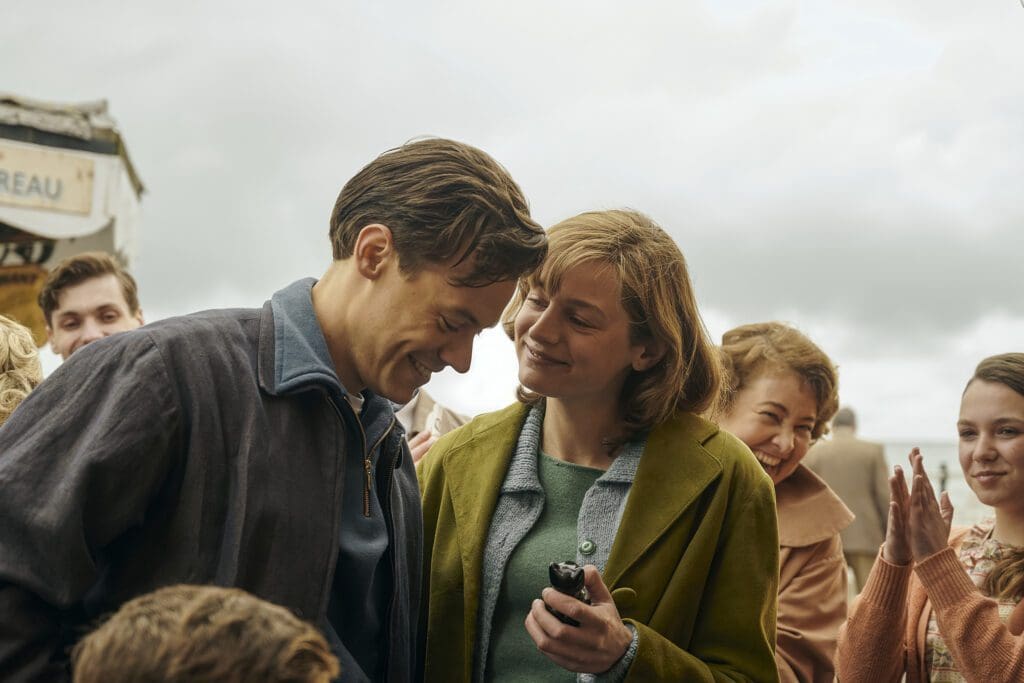Summary
There is simply no suspense in Grandange’s My Policeman. A tedious melodrama about broken hearts, bruised minds, and crippled lives that drags itself to the finish.
We review the Prime Video film My Policeman, which does not contain spoilers.
If My Policeman were not such a tediously average melodrama, Michael Grandage‘s adaptation of Bethan Roberts’ best seller could have been Harry Styles‘ coming out party as an actor. A performer who has been well received of late for Dunkirk and the recent Don’t Worry Darling is stuck in the mud in this film. This is eye-opening, considering the script is from Philadelphia scribe Ron Nyswaner. Even if the scenery and actors look visually pleasing, there is simply no suspense in Grandange’s film, which is one that drags itself to the finish. Strange, since a film that follows the story of broken hearts, bruised minds, and crippled lives shouldn’t be anything but powerfully moving, or at least more poignant to a degree.
It is 1950s England, and a dashing museum curator, Patrick Hazlewood (All the Old Knives‘ David Dawson), meets a handsome man in uniform. That man is Tom Burgess (Harry Styles), a police officer on patrol. While at the same time, Tom is courting Marion (The Crown’s Emma Corrin), as they form a pairing that most are envious of. However, the romance between Tom and Patrick does not stop there, even after Tom and Marion enter marital bliss.
Like the source material, the story toggles between the present-day nineties setting and that British love triangle. Now grey and aged gracefully, Marion (now played by Phantom Thread’s Gina McKee) discovers Patrick’s (My Best Friend’s Wedding’s Rupert Everett) diary, after graciously bringing Patrick in to live with them. He now uses a wheelchair and can no longer take care of himself. The rub is that Tom (Law & Order’s Linus Roache) now wants nothing to do with him. Why? That is unclear at first. However, after Marion discovers their old friend’s diary, she gains greater insight into her husband’s past, and even Patrick’s suffering.
While McKee and Dawson give the film’s best performances, they are also the most heartfelt. That may be more apparent because Styles’ Tom is so wooden and unempathetic in his portrayal of a repressed gay man. It’s nearly impossible to go past anything but surface-level insight or feelings.
You may think the script could then go the other way. He is a well-rounded character who is so scared of societal norms that he coldly rejects his lover. Tom even uses his wife as a beard for protection while not caring for her true happiness. Instead, his demeanor never pivots. That becomes even more evident when Roache’s Burgess’s regret comes pouring in the film’s most moving scene.
Reportedly, Robert’s novel of the same name greatly affected Grandage, but his film version is too timid, meandering, and even dull. When you consider great films of LGBTQ+ rights like Call Me By Your Name or ones with compelling subplots like The Imitation Game; recent streaming series like A League of Their Own or HBO Max’s Nuclear Family, My Policeman missed a chance at putting a stamp on a film that could depict true repression and palpable regret.
And there’s the real problem with My Policeman. The viewer’s longing for a better movie outweighs the characters’ yearning for better lives.
What did you think of My Policeman? Comment below.
More Stories on My Policeman



